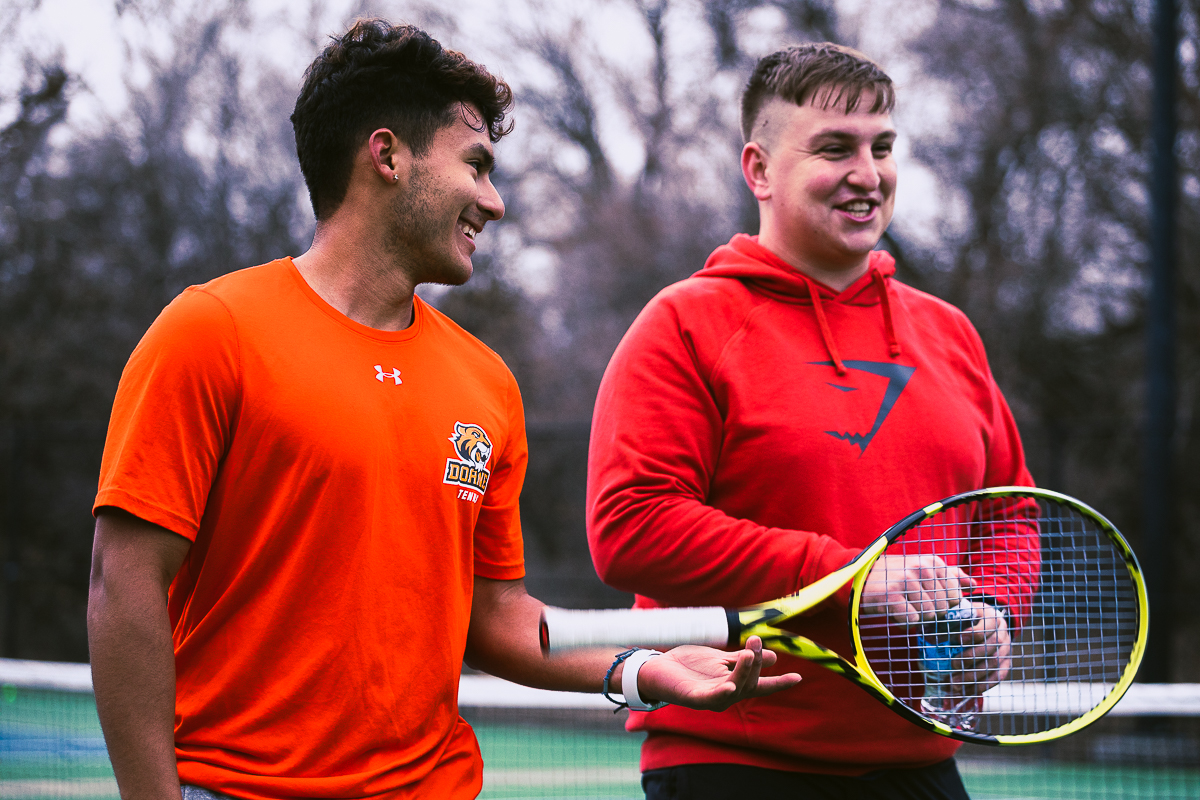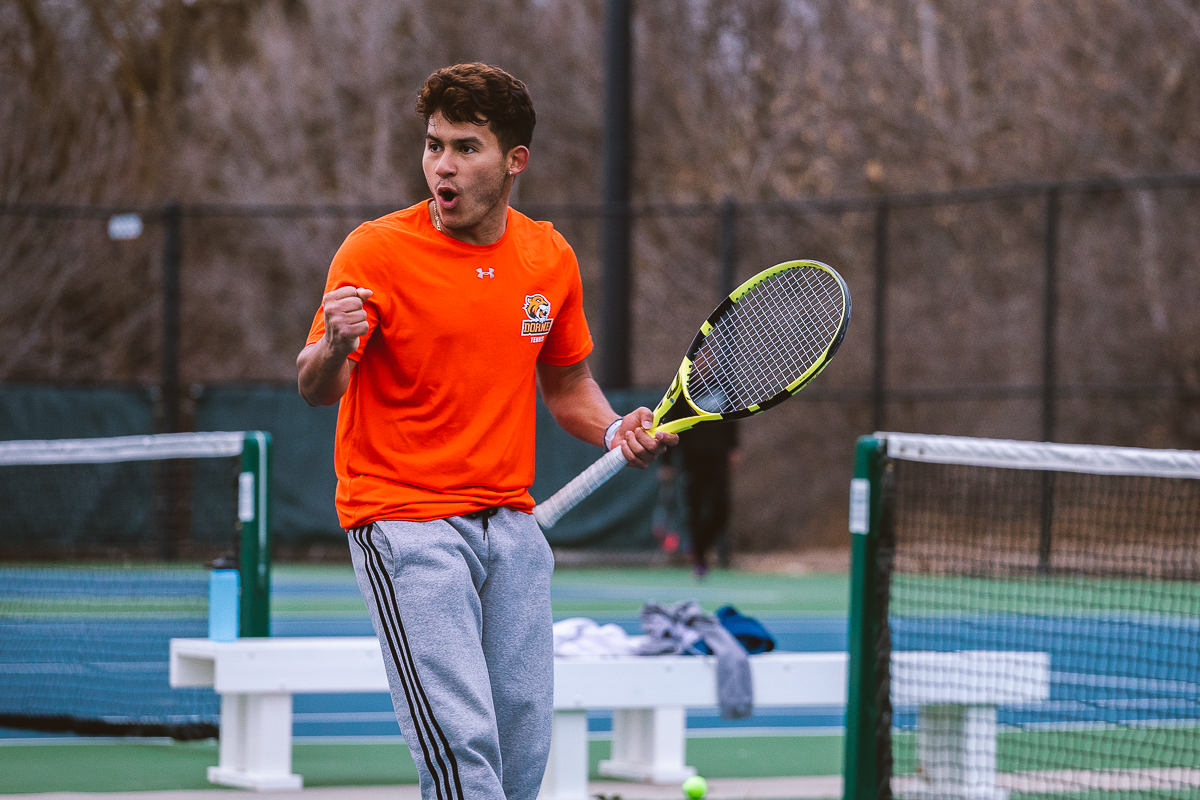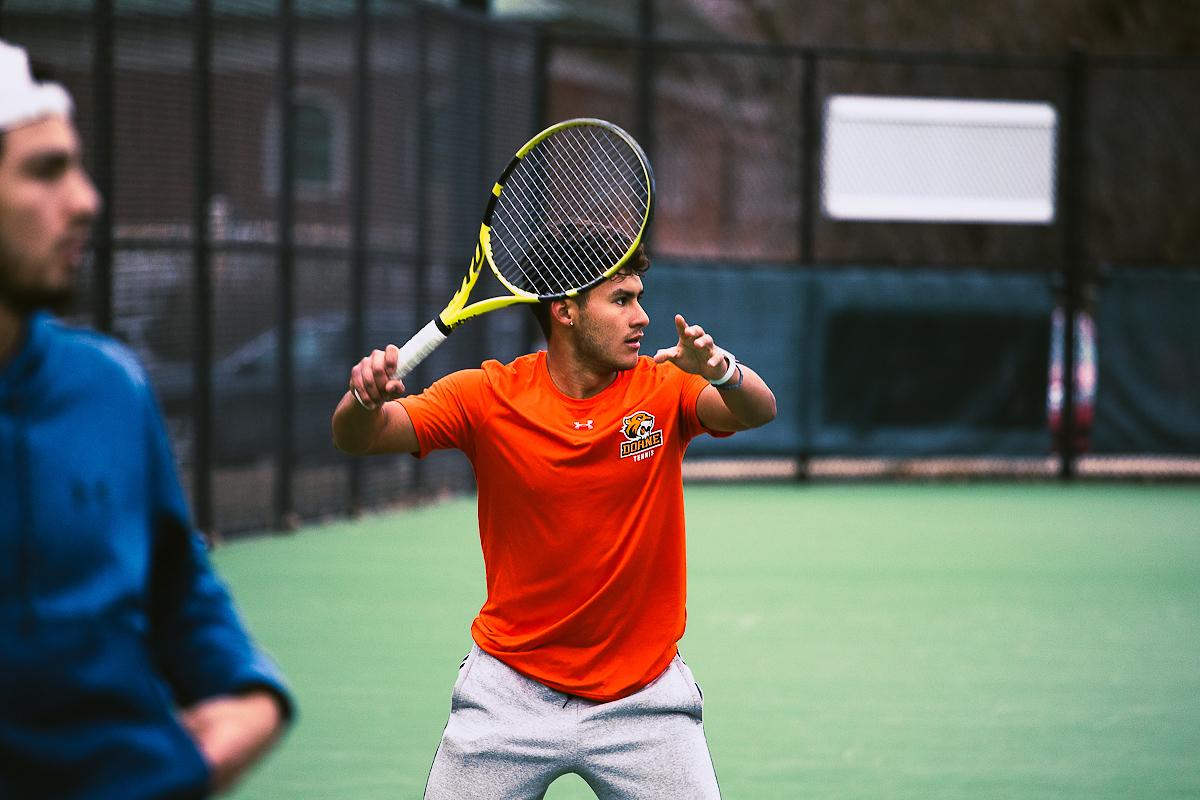
Article by Sara Hinds | Photos by Liz McCue
It's always been Jorge Chevez versus the rest of the world.
The 22-year-old senior at Doane University has played for the Panama National Team since he was 12 and just two years into his tennis career.
“You're in the court by yourself,” the Panama City native Chevez said of the sport. “If you win it’s because of you, if you lose it's because of you. And, until I was 18, that's how it was. That's how I felt.”
And even when it’s not (i.e., doubles) it still was for Chevez.
The real rally doesn't take place over a net, but back and forth between himself and his mind.
An individual sport can turn isolating. Especially when you’re not winning — or performing to expectations. Until he came to Doane. Here, he’s found not only a renewed love for tennis, but the value of having a team, and support on and off the court.

One is the loneliest number
Chevez was dubbed “Mr. Second Place” in his teenage years and wanted to quit tennis on multiple occasions. He didn’t win his first tournament until he was 16.
For two years he was on top of the world, well Panama, as the top-ranked tennis player in his age group. But the momentum swung back after less-than-ideal performances in Central America, South America and the Caribbean.
After one of those international tournaments in Honduras, Chevez’s dad picked him up from the airport.
“I told him I want to stop [playing tennis],” Chevez said. “I don’t want to play anymore. Like, really, I don’t want to play anymore.”
With time — and a heart-to-heart with his dad — Chevez’s mindset shifted. He decided winning results wouldn’t hold as much weight. He’d focus on his talent as a viaduct to play collegiately in the United States.
A month after his last tournament — a loss in the final — he arrived at Doane.
“And everything has been uphill from there,” he said.
Well, almost.
Exit Panama, Enter Doane
The culture shock that came with attending a college 3,000 miles away from home took time to overcome. There was the weather (snow!) and the language barrier that caused challenges with learning and making friends.
From the second-place finishes, near quits and supportive parents, Chevez has developed a healthy balance of optimism and ambition.
He looks at losses as humbling experiences — and then motivation to become better.
“And here I am, four years later [and] I’m about to graduate,” Chevez said. He’s already working toward his Master of Business Administration.
“I’m really proud of that,” Chevez continued. “How adaptable I was, and the way that I overcame all my problems [and] the adversity that I faced.”

Even more so, Chevez has found major success on the court at Doane. He’s won six conference titles total, three each in singles and doubles. He’s been ranked nationally six times in the top 50 by the Intercollegiate Tennis Association. And last season he broke the school record for career wins based on records since the restart of the program in the 1990s.
Oh, and he fell back in love with the sport.
“These past four years have been the best years in my sports career, to be honest,” Chevez said.
And he’s gearing up for more of the best on the court after college — whether that’s coaching or going professional is still up in the air.
He’s received interest in both, but his passion — and own interest — has grown with the former.
He currently coaches two kids in Crete. He views it as a natural extension of his talent, ambition and patience as a player.
“I was really surprised when I found out about my passion for coaching,” Chevez said. “I want to keep doing it, keep working on it, keep getting better. And I’m pretty sure I can do it.”
Especially with Coach Pepe as a role model. Pepe taught Chevez’s dad how to play tennis and has been his only coach before college.
“One day he told my dad, ‘Don’t make him play soccer. Keep bringing him here to the court and let’s see if he likes it,’” Chevez said.
That turned into 12-9 p.m. sessions on the court amidst homeschool since the age of 14. Pepe became like a second father to him, Chevez said.
“He kept building [on] the values that my parents taught me,” he said.
Chevez sees a younger version of himself in one of his players. Shy, not keen to elaborate further than a “yes” or “no” in response to questions and directions.
And that makes Chevez giddy. Because look how much Chevez has grown to love tennis. It’s become more than an individualized sport.
The relationships he’s developed with teammates, coaches and students are the game-set-match to a lifetime love of tennis.

